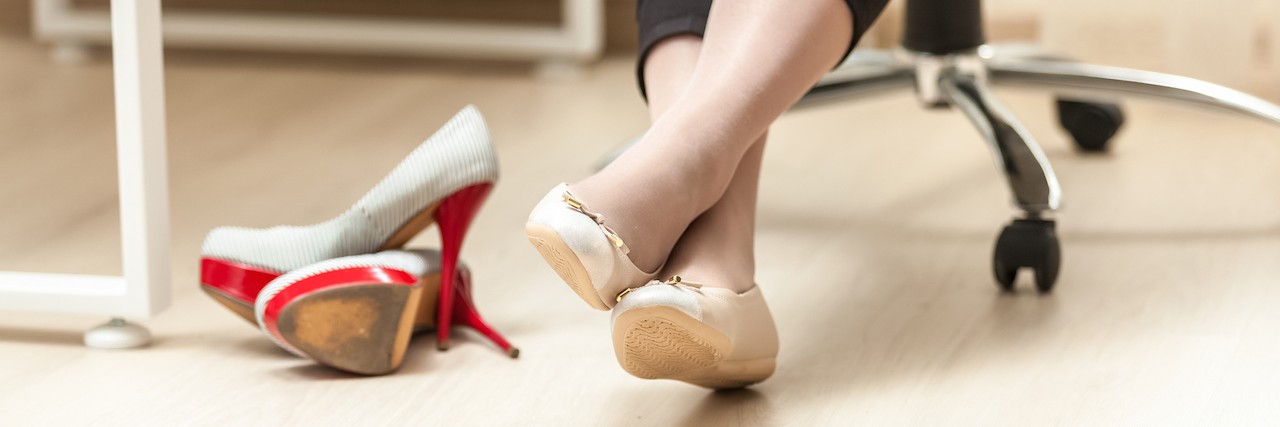Why I Can't Support Mandatory High Heel Policies as a Woman With Chronic Illness
Using a local yard sale page, I recently sold every pair of high heels I own. Knowing I’d never wear any of them again, I felt a bit of regret as I handed off the last pair. But the sadness I felt had less to do with fashion and more to do with what the loss of the heels represented — one more thing my chronic pain had taken from me. Shoes became yet another area of my life that couldn’t escape the force of my condition, known as thoracic outlet syndrome (TOS).
Along with my TOS, I suffer from chronic migraines, unrelenting muscle spasms and several related neurological symptoms. Many things trigger my pain flareups, and wearing heels is just one lifestyle choice I couldn’t endure anymore. Looking sexy in a pair of pumps simply isn’t worth the crippling pain that often follows.
The debate over women wearing heels, particularly in the workplace, is currently a heated one within the feminist community. Last month, a waitress named Nicola Gavins exposed Canadian restaurant chain Joey’s policy of mandating women to wear high heels to work. Gavins even posted a gruesome photo of her bloodied feet. And another receptionist in London was sent home from an accountancy firm for wearing flats in lieu of the mandated two- to four-inch heels, leading to a controversy igniting an online petition currently boasting over 140,000 signatures.
The Cannes Festival has admitted to requiring female attendees to wear heels to screenings, and even women with medical conditions and amputations have been reportedly stopped on the festival’s red carpet for not abiding.
I don’t believe any woman should be mandated to wear something that makes her uncomfortable or risks her health, especially when the same requirements are not being asked of men in the same positions. However, for women with chronic illness, I believe obligatory heels are not only sexist, they are downright discriminatory.
Some might argue that an employer, like Joey’s, often makes medical exceptions for people with disabilities. But there are problems inherent in such a segregated policy. For one, the requirement then becomes an additional way women with disease are made to feel different from their peers. Wearing heels like our coworkers becomes another item added to the list of things we cannot do. Superficially, women are divided by heels versus flats, but on another level, they are separated into the categories of ability versus disability.
When a woman with a medical condition wears flats to a workplace that requires all the other women to wear heels, she has now announced her condition not only to her employer but to all her coworkers as well. Some coworkers may feel jealousy — Why does she get to wear flats and I have to wear heels all day? Others may feel pity, and still others may doubt the medical condition even exists; after all, there’s a reason many illnesses are labeled invisible. Subconsciously or not, once employers are made aware of a woman’s condition, they may begin to doubt the value of her work — If she can’t wear heels, what else can’t she do?
Maybe the point is that women shouldn’t have to prove they have a medical condition in order to be comfortable. Health is private, and when we force a woman to wear heels to work, we are erasing not only her fashion choice but her right to privacy.
The Mighty is asking the following: Describe a moment where you experienced intolerance or inaccessibility. What needs to happen to change this? Check out our Submit a Story page for more about our submission guidelines.

